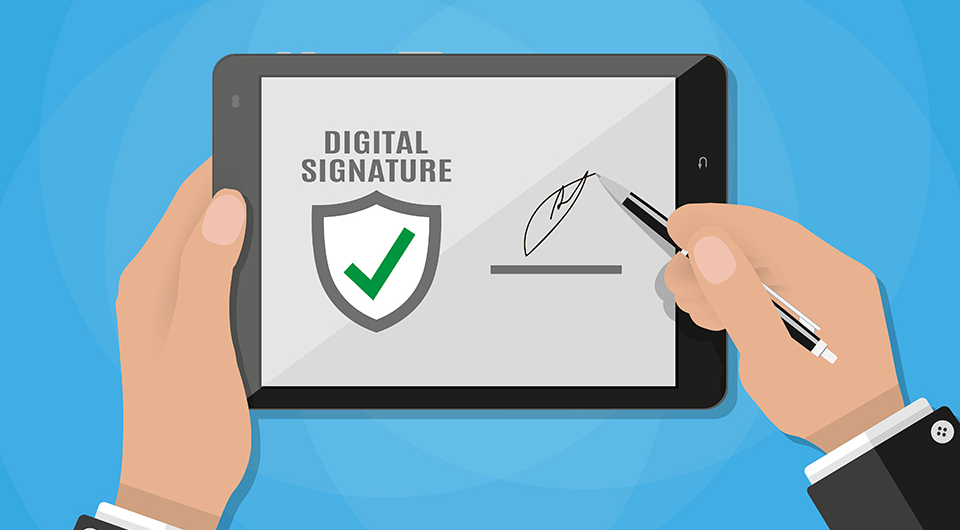The Future of Documentation: How Electronic Signatures Are Transforming Business Transactions

In today’s digital-first world, managing documents and closing deals swiftly is a priority for businesses everywhere. The rise of the Electronic Signature is revolutionizing the way transactions are handled, making paperwork faster, easier, and more secure. At the forefront of this transformation is Eurosign, an esignature platform that streamlines documentation, leaving behind the hassle of endless follow-ups and missing signatures. In this article, we’ll explore how electronic signatures are reshaping business practices and the benefits they bring to the table.
The Shift from Paper to Digital
Traditional paper signatures have been a standard part of business transactions for decades. However, physical documentation often leads to delays, misplacements, and high costs. The shift towards digital documentation has reduced these issues significantly, with electronic signatures playing a pivotal role in this evolution. By using electronic signatures, businesses can eliminate the need for printing, mailing, or in-person meetings just to get a document signed.
Eurosign’s platform, for example, offers a legally binding electronic signature solution that meets all the necessary security standards, ensuring that the documents are compliant and trustworthy.
Key Benefits of Electronic Signatures
Electronic signatures offer various advantages that simplify the documentation process and enhance security, efficiency, and compliance.
1. Enhanced Efficiency and Time Savings
With electronic signatures, businesses can save substantial time and resources. Documents can be signed and returned in minutes, regardless of location, eliminating the traditional delays associated with shipping or physical delivery. This feature is particularly valuable for businesses with clients, partners, or stakeholders worldwide.
2. Reduced Costs
Switching to electronic signatures means companies can reduce expenses on paper, ink, postage, and storage space. Additionally, this digital transition minimizes the environmental impact of business operations, making it an eco-friendly choice.
3. Improved Document Security
Electronic signatures often come with layers of security that traditional signatures cannot match. Platforms like Eurosign incorporate features like encryption, audit trails, and multi-factor authentication to ensure that only authorized parties can access and sign documents. This level of security reduces the risk of fraud and unauthorized changes.
4. Legal Validity and Compliance
One of the concerns surrounding digital signatures has been their legal standing. However, with advancements in digital security and widespread adoption, electronic signatures are now legally recognized in many regions. Eurosign’s platform provides legally binding esignatures, so businesses can rest assured their documents meet compliance standards across various jurisdictions.
How Electronic Signatures Are Transforming Industries
Electronic signatures have proven to be versatile and beneficial across different industries. Here’s a look at how they’re impacting some key sectors:
1. Real Estate
Real estate transactions often involve multiple parties and require numerous signatures on various documents. Electronic signatures have simplified this process, allowing agents, buyers, and sellers to complete transactions faster and more securely without needing to meet in person.
2. Healthcare
In healthcare, quick access to signed documents is crucial for patient care and administrative efficiency. Electronic signatures enable healthcare providers to sign consent forms, medical records, and prescriptions promptly, enhancing patient satisfaction and data security.
3. Finance and Banking
The finance industry relies heavily on documentation for loans, contracts, and compliance. Electronic signatures accelerate the approval process and ensure regulatory compliance, helping banks and financial institutions improve service delivery and streamline operations.
4. Human Resources
From onboarding to contract renewals, HR departments handle numerous documents that require signatures. Electronic signatures enable HR teams to complete hiring processes faster, store documents securely, and ensure compliance with labor laws and regulations.
Eurosign: A Reliable Partner for Electronic Signatures
Eurosign offers an intuitive, secure platform for electronic signatures, designed to be both user-friendly and legally binding. This allows businesses to complete transactions quickly without compromising on security or compliance. With Eurosign, you can say goodbye to time-consuming follow-ups and the risk of missed signatures, as the platform provides real-time notifications and tracking for complete transparency.
The Future of Documentation: What Lies Ahead?
As businesses continue to digitize, electronic signatures will only become more integral to daily operations. Future developments may include AI-powered verification, enhanced biometric authentication, and increased integration with other business software for a seamless workflow. By adopting platforms like Eurosign, businesses can stay ahead of the curve and continue to streamline their operations effectively.
Conclusion
The transformation brought about by electronic signatures marks a significant step forward in modern business practices. By adopting a reliable platform like Eurosign, businesses can enjoy greater efficiency, cost savings, and security while ensuring their documentation is legally binding and compliant. Embracing electronic signatures is not just about keeping up with technology; it’s about creating a seamless, modern, and environmentally friendly approach to business transactions.
Ready to eliminate the stress of managing paper documents? Eurosign offers the perfect solution for today’s digital business needs.